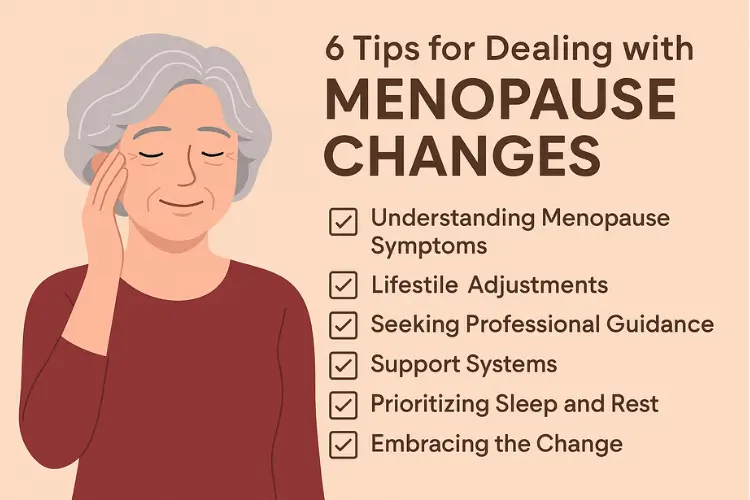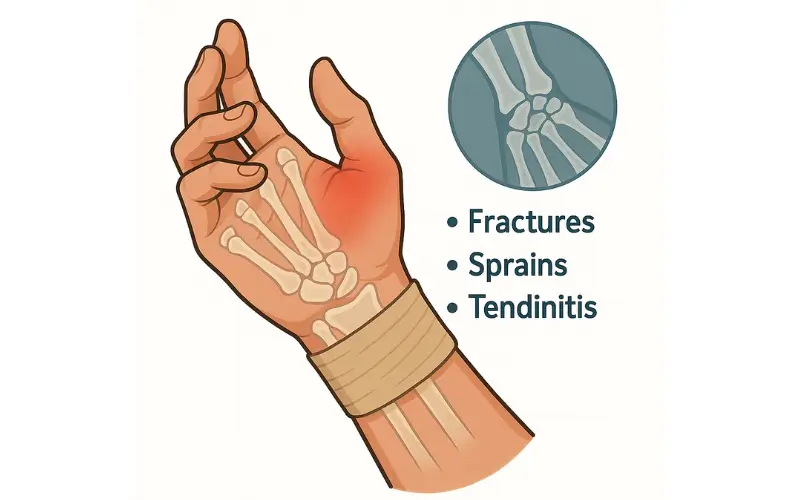When you near menopause, your body goes through changes that might be hard to manage. Hot flashes, changes in periods, and issues with sleep are among the most frequent problems. Is recognizing these changes troubling you? Knowing what may happen can lessen the tension. Remember that each woman has a different experience, and assistance is available. This article presents what you need to know and the actions you can take to take control of menopause. With available resources, the help of a professional, or the backing of family, you do not need to cope with these changes alone, but of course, these changes can be managed and made to be a part of your life.
Understanding Menopause Symptoms
Before getting used to the changes of menopause, you have to look closely into the symptoms, which include both physical and emotional ones. Night sweating, tiredness, and changes in a woman’s intimate health are some of the most common signs that you might experience. You may also be prone to sudden feelings of anxiety or random shifts in mood. This may alter the quality of your sleep or decrease your energy level. A reduced sexual interest might sometimes occur. Accepting these symptoms as a natural part of the transition will make it easier to recognize them and take care of your well-being.
Lifestyle Adjustments
Certain modifications in lifestyle can give you great relief from the symptoms related to menopause. The first step is to maintain a balanced and healthy diet. Even taking a daily walk is beneficial, as some exercise helps maintain your physical health and even improves your mental health. Stress reduction can be achieved through a practice like yoga or a daily deep-breathing exercise, a simple way to promote relaxation. Another thing to do is to drink sufficient water to keep the body hydrated, as well as to moderate caffeine and alcohol intake. Such habits may combine to make your body more prepared for menopause while still keeping your daily health and energy.
Seeking Professional Guidance
Whenever menopause symptoms become too difficult to manage, do not shy away from consulting with а doctor. Such professionals are trained to give you support and guidance when facing menopause. Contact gynecologists, family doctors, and menopause specialists in your area to let them provide personalized treatment. For example, if you live in Virginia, seeking help from a menopause specialist in Richmond, VA can ensure that you really receive care tailored to both your symptoms and local healthcare resources. Such treatment methods may include hormone replacement therapy or medications that relieve the worst symptoms. They will assist you in selecting what is best for you and work together with you toward coming up with a treatment strategy that is good for your needs.
Support Systems
Going through menopause can become much easier when you have a reliable support framework. You can receive direct support from other women in your family or friends who have gone through this phase, or even community support groups. A therapist might help you work through what you are feeling emotionally during these changes, a valuable part of coping. Your family can actually become the biggest support when they understand how to assist you through open discussions. There are many online forums and sites that give the right contacts and suggestions put together by those who have been in the same situation. Such a network will have a large positive influence on your own experiences.
Prioritizing Sleep and Rest
Menopause usually has irritating effects on sleep because of night sweats, hormonal imbalance, or nervousness. Restlessness may develop other symptoms, such as irritability, fatigue, and mood swings. To improve the quality of your sleep, you should attempt to develop a regular bedtime schedule and make your bedroom а relaxing place. Room temperature, screen time before sleep, and relaxation strategies like meditation can also help make а difference. Many women find that using breathable bedding materials helps them maintain a comfortable body temperature. By making sleep the first priority and giving your body time to heal, you will be able to face the changes of menopause more resiliently.
Embracing the Change
You can view menopause not as an ending, but rather as a period of growth and self-discovery. Many women discover that they start to think deeply about who they are and what they want as they go through this difficult life change, even when not all changes are easy to deal with. Menopause is a natural part of life for all women, and seeing it this way helps undo the negative views often linked with this stage. This is indeed an appropriate stage to begin to do what you have always wanted to do. In reality, if you can befriend yourself and deal with each day one at a time, this phase of life can be a very inspiring journey of self-exploration.
Conclusion
Your experience of menopause may not be the same as another woman’s, but there are а few shared steps that can actually make the journey easier. When you are aware of what is happening, make the correct lifestyle decisions, and seek professional assistance, you will feel more in control. Moreover, it is important to be accommodative of what you can do best to stay healthy. Menopause is made less challenging to manage when you perceive the period as a chance to develop, and when you have a strong support network. Whichever direction you take, make sure that you are nice to yourself, keep in contact with a good support group, and are receptive to whatever life has to present in this phase.




